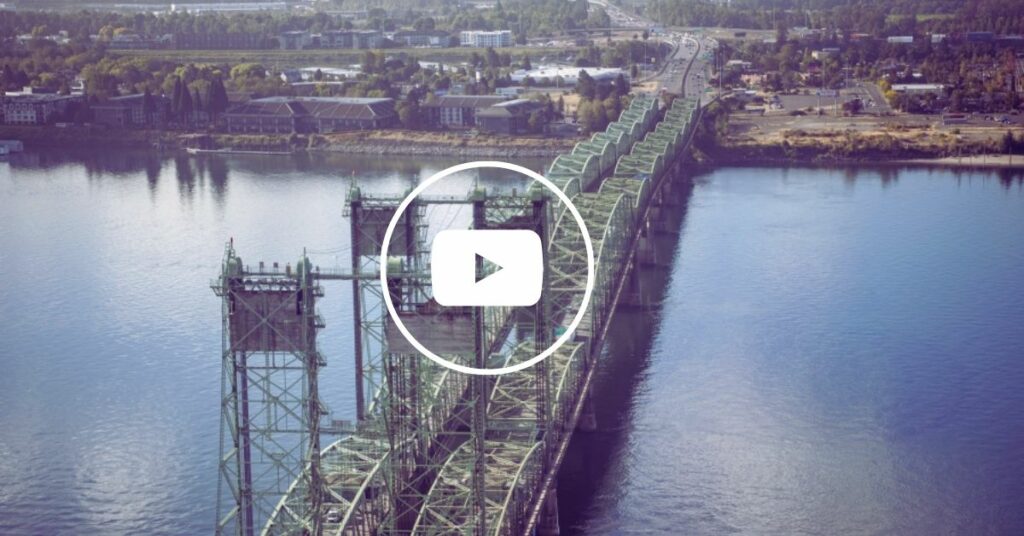This week, legislators in Washington will debate whether to begin charging tolls on the Interstate 5 bridge, a change that could come about in the next few years.
To help fund the multibillion-dollar undertaking, a measure has been introduced in the state’s Senate Transportation Committee that would give the Washington Transportation Commission the authority to charge fees on the bridge. However, the measure specifies that the requisite “adequate” government funds and a tolling deal with Oregon are conditions for exercising that power.
Lawmakers have indicated that passage of either of these measures could take a long time. Although time is running out to apply for government funds, the proposal will be strengthened by the authority’s approval.
“Our ultimate goal is to do everything in our power to obtain the maximum number of federal dollars possible for the I-5 bridge replacement project,” said Washington Sen. Annette Cleveland, D-Vancouver.
Highway 205 tolling has been proposed in Oregon, but this law would prevent that. No fees for chauffeurs would be established, and no time frame would be given. Sharon Wylie, a Democrat from Vancouver, has proposed a companion measure in the state legislature of Washington.
The law stipulates that an agreement must be reached between the transportation commissioners in Washington and Oregon for tolling to commence.
The vast plans to replace the old bridge that links Oregon and Washington over the Columbia River extensively incorporate tolls. According to the project, tolls could generate $1.1–$1.6 billion in revenue.
Drivers could spend anywhere from $1.50 to $3.55, according to projections made at a gathering on March 21. This cost may start accruing sometime during the nearly ten-year duration of the new endeavor.
In addition, “varying rate tolling” is planned, where the price changes up and down depending on the traffic volume. Regional transit organizations estimate that 130,000 cars use the bridge daily during the work week.
Cleveland said she anticipates many debates about the tolling’s particulars once those particulars become clear. The goal of the planners is to provide discounted rates for low-income motorists. The transportation board in Oregon has been granted the power to collect tolls, as required by Washington law.
Portland, Vancouver, and other regional public agencies hope the federal government will foot a sizable portion of the bill. The Inflation Reduction Act has released billions of “once in a lifetime” government funds.
“Go big. Do the big ask and get it done,” Vancouver Mayor Anne McEnerny-Ogle told planners at a recent meeting.
The latest news from Oregon State, including all the news you can’t miss:
- Merkley and Wyden Announcing $50 Million in Housing Help for Oregon.
- Oregon’s Semiconductor Sector Gets $210 Million From the Senate.
The original bridge was constructed over a century ago, and its replacement is estimated to cost between $5.5 billion and $7 billion. The Federal Highway Administration is one of the organizations planners hope to approach for funding of at least $1 billion.
The Interstate 5 Bridge Reconstruction Program planning staff, financed equally by the two states, has announced that it will begin filing for federal funds this summer. The federal government has already committed $1 billion to the endeavor. Legislators in Oregon have started spreading their proposal to contribute another $1 billion, which they announced last week.
Meanwhile, tolls have been a source of debate. Politicians in Southwest Washington have been fighting them for decades. However, with the election of new leaders like Cleveland and McEnerny-Ogle, perhaps a change in tone is on the horizon.
In 2021, the then-current U.S. GOP Representative Jaime Herrera Beutler wrote an angry message to the Oregon Department of Transportation, claiming that the fees on the bridges into Portland “punish” her voters.
Democratic Representative Marie Gluesenkamp Perez, who will succeed Herrera Beutler, issued a statement expressing cautious optimism that the transition would soon commence. “The best bridge is one that gets built,” she said.
“My role in Congress is securing the federal dollars needed to complete the project, and I hope that any plan at the state-level to fund the bridge replacement project keeps the impact on working people top of mind.”
If you visit our site, you may read the most recent news stories we’ve covered and always know what’s happening in the news world.

